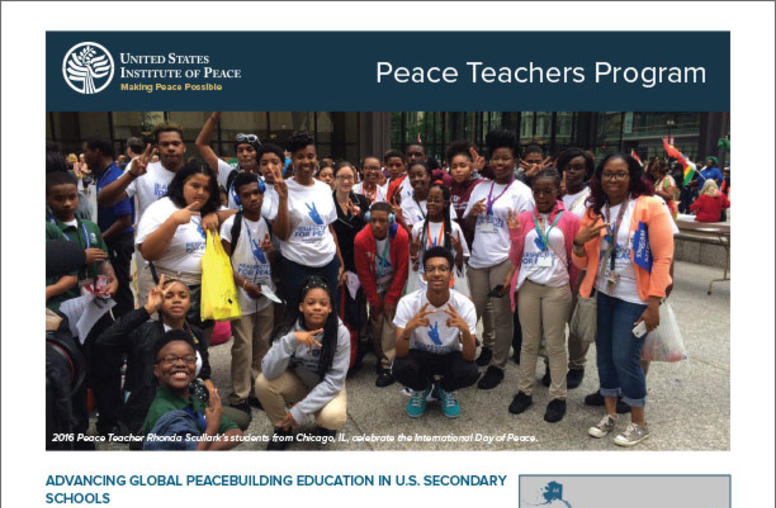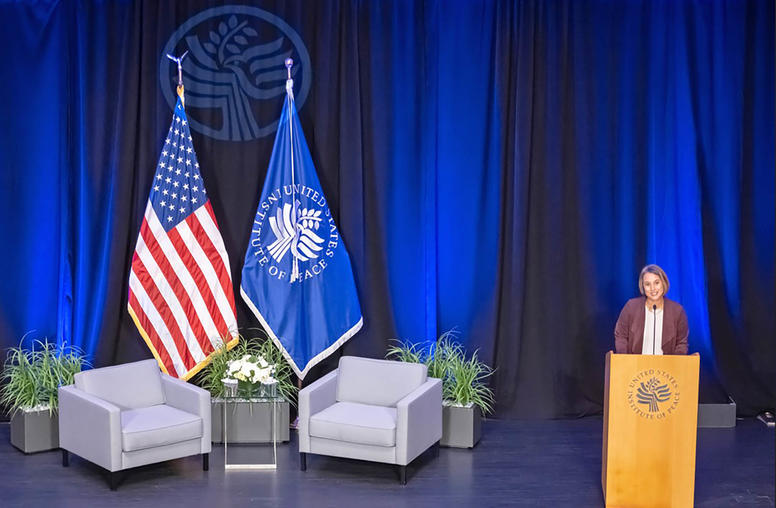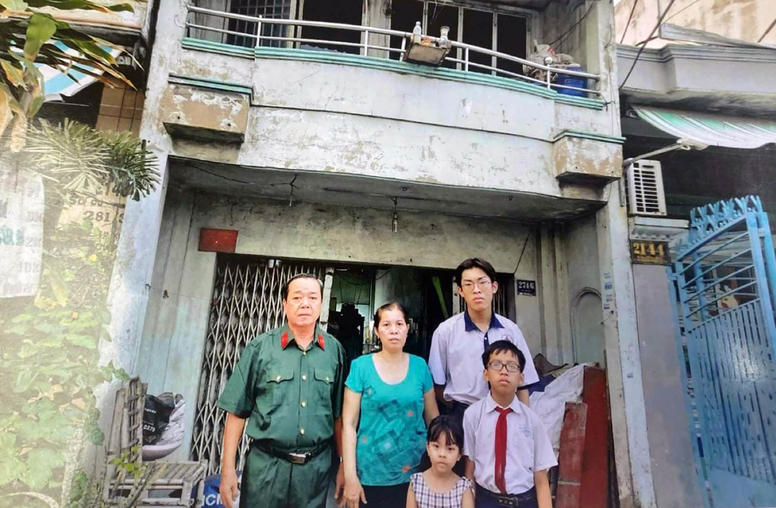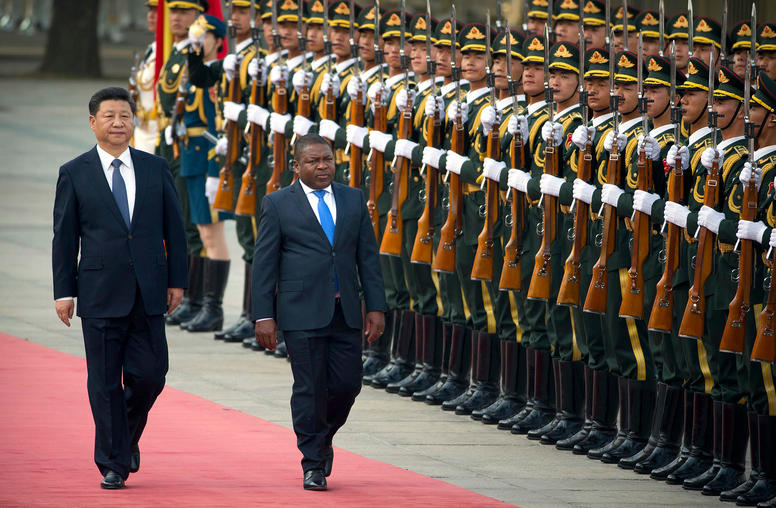While speaking to middle- and high-school students as part of the USIP and Inspired Classroom Challenge, Osama Gharizi, USIP’s senior program advisor for Iraq, said, “Next time you hear anything in the news about Iraq, which will most likely be bad, just remember that there are good stories, there is a sense of normalcy, there are positive things that are happening.”
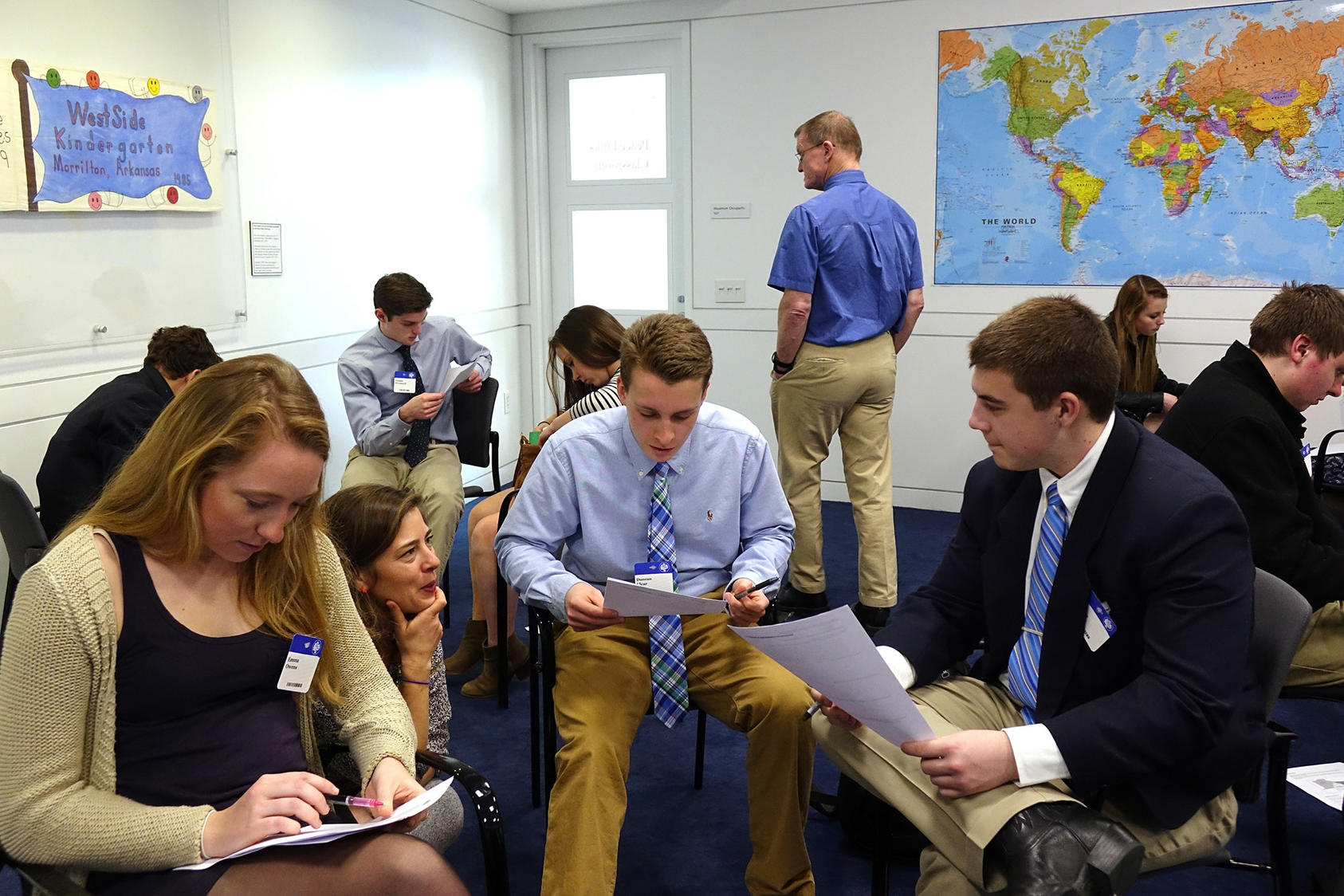
The USIP and Inspired Classroom Challenge aims to support students across the United States as they elevate peacebuilding stories from around the world to contrast with the stories of violent conflict and extremism that tend to dominate the news cycle.
Participating students have been asked to research and design public awareness campaigns about peacebuilding. And to help them get started, USIP, in partnership with Montana-based Inspired Classroom, connected American students with USIP field offices in a series of four live, virtual sessions in September. Spanning eight time zones, four field offices, and 13 classrooms in 10 states, the sessions were an opportunity for students to engage directly with peacebuilders—and for many of the students, marked their first time conversing with people who live abroad.
While each speaker gave brief opening remarks, the sessions were an opportunity for a more interactive conversation about USIP’s work, everyday life in conflict zones, and questions about culture and history.
Moving Beyond Stereotypes
Getting to know people for who they are, and not just as stereotypes, is a vital part of peacebuilding. Adnan Rafiq, from USIP’s office in Islamabad, Pakistan, talked about the country’s diversity and how USIP’s work there focused on bringing people together through shared experiences to help them realize “we have more in common than not.”
What an amazing day we had learning from members of @USIP working in countries such as Pakistan, Iraq & Tunisia! Thank you @InspiredClasses for a fantastic opportunity to become engaged & informed global citizens!! @mehms #PeaceDayChallenge pic.twitter.com/9IKT8nnSVV
— Jeff Buck (@JeffBuck6) September 24, 2019
In Pakistan, Rafiq noted, when there aren’t opportunities to engage in such cultural exchanges, people can form opinions of others without knowing them. In a large country like Pakistan, where so many languages are spoken, sometimes it’s the little things, like overcoming a personal prejudice, that can “create a spark to change your worldview.”
Rafiq prompted students to reflect on a time when they had participated in cultural or religious celebrations outside their own traditions. A middle school student from Virginia shared how he had the chance to observe Día de Los Muertos celebrations in Mexico. He found the traditions—the use of marigolds and sugar skulls—to be an interesting way to honor departed family members, which was very different than what he was accustomed to.
Youth Can Make Peace Possible
Leo Siebert, USIP’s country manager in Tunisia, asked: “What makes peace possible?” Students brought up actions such as negotiating, using words instead of violence, raising awareness about problems, and establishing respect between parties.
Students in 7th grade civics class had the opportunity to engage with members at the United States Institute of Peace and schools across the country on International Peace Day! @JeffBuck6 @MsEichner @FCCPS pic.twitter.com/iSoPQFECmB
— Mary Ellen Henderson Middle School (@mehms) September 24, 2019
Siebert agreed, adding notions like trust, confidence, inclusion, and—importantly—the engagement of youth. Citing their “courage and energy to drive change,” Siebert noted that young people were key to Tunisia’s 2011 revolution and that social movements like that cannot succeed without youth involvement.
In Nigeria, USIP’s Terfa Heman and Maryam Ado Haruna, a member of the Nigerian Network of Facilitators (NNF), highlighted USIP’s partnerships with youth leaders through projects like the Generation Change Fellows Program, the Youth Advisory Council, and area-specific programs, such as the peace clubs that Maryam facilitates. Hernan told the students that support for these programs is so strong because young people are looking to take charge of their home and their future.
Hope in Difficult Circumstances
This is not to say there aren’t issues with violence and tension in the communities where peacebuilders live and work. Siebert shared that when Tunisians took to the streets in 2011, they “gave up stability for freedom” by bringing down the dictatorship, and that the country is still working on establishing democracy.
When asked about daily life in Iraq, Gharizi was honest with the students about the struggles facing the country, describing conditions with limited electricity, clean water, and safety. Gharizi explained that people have adapted their routines to the often difficult reality—for example, using communal generators to fill the gaps of the state-electrical grid and planning their days around navigating checkpoints throughout Baghdad that sometimes brings traffic to a halt.
But he said he is still hopeful about peace in Iraq: “Every time I go back, I am hopeful. I think we have to think about change and peace with a longer-term horizon in mind, but there are small things occurring that give hope … There is more and more public space for culture, more festivals happening on the street, art shows, and music. I am seeing daily life return to public spaces.”
***
The USIP and Inspired Classroom Challenge is part of USIP’s broader 2019 Peace Day Challenge. Over the past four years, this signature USIP campaign has engaged schools and organizations across the U.S. and partners in conflict zones, as well as reaching tens of millions of people via social media. By participating in the USIP and Inspired Classroom Challenge, teachers and students can help bring the 2019 theme to life: Peace is Possible. It Takes Action. It Takes All of Us.
It’s not too late for teachers in the United States to sign up for the USIP and Inspired Classroom Challenge, which is open through November. For more information, contact publiceducation@usip.org.
A special thank you to Bozeman High School in Bozeman, Montana for hosting USIP and Inspired Classroom as we coordinated the live sessions!
